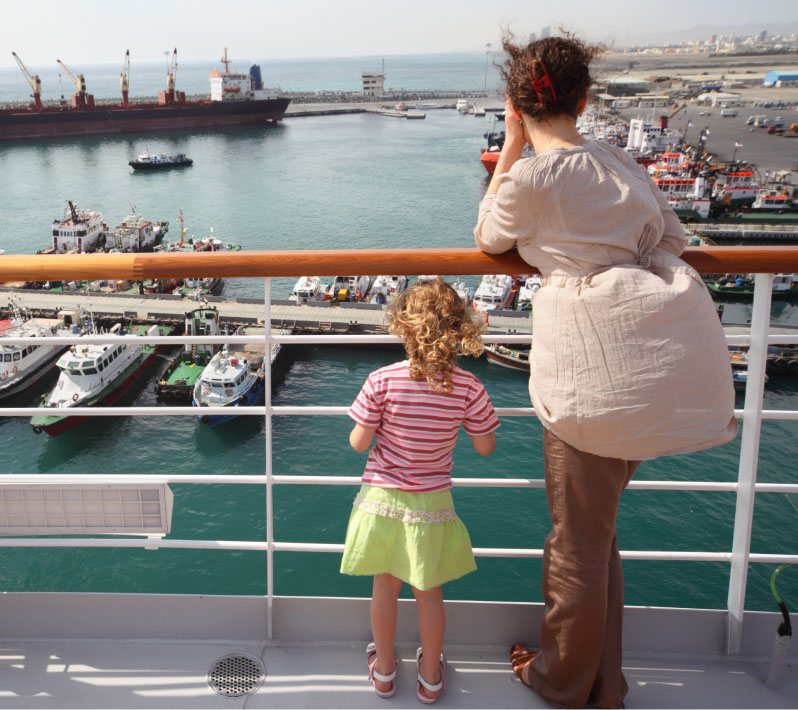The Ports for People campaign is celebrating its first anniversary. The campaign was launched in September 2022 alongside a Ports for Zero-Emission Shipping Playbook to provide guidance for ports working towards a zero-emission future.
Ports for People Celebrates First Anniversary, Shipping and Ports Wins
The Ports for People campaign is celebrating its first anniversary. The campaign was launched in September 2022 alongside a Ports for Zero-Emission Shipping Playbook to provide guidance for ports working towards a zero-emission future.
Together with local communities, allies and partners, Ports for People seeks to transform ports from hotspots of fossil fuel pollution to thriving hubs of sustainable economic development and environmental protection. Shipping contributes more than 1 billion metric tons of carbon dioxide emissions every year – which means that decarbonizing ports and shipping is critical to keeping global temperature rise below 1.5 degrees Celsius.
Just this month, the UN reported that the window is “rapidly closing” to limit global temperature rise below the 1.5 degrees Celsius threshold. The UN report makes clear that emissions must fall 43% by 2030 and 60% by 2035. Meanwhile, ICCT estimates that shipping is on track to exceed its carbon budget as soon as 2032, even with the International Maritime Organization’s Revised GHG Reduction Strategy adopted this summer.
Allyson Browne, Climate Campaign Director, Ports, for Pacific Environment said, “This year alone, we’ve seen the hottest temperatures ever recorded, record-breaking sea surface temperatures, devastating floods and more – all brought on by our human-caused climate change. Ports, shipping companies and everyone in the shipping value chain must do their part to accelerate the transition to zero emissions as quickly as possible. Over the past year, we have seen progress on green shipping corridors, zero-emission ships and port decarbonization commitments, but the industry is not moving quickly enough. The world is burning; boiling, and we need immediate action on shipping now.”
Teresa Bui, Climate Policy Director for Pacific Environment said, “Mandatory policies and enforcement mechanisms are key to decarbonizing the global shipping industry, and we are calling on policymakers at the local, subnational, national and international levels to advance shipping policy and decarbonize this heavily-emitting industry for the sake of our port communities and the world.”
In 2022 and 2023, we have supported and celebrated several initiatives to move international shipping and ports forward to zero emissions. Here are highlights from the past year:
- In August 2023, Governor Gavin Newsom and The Honorable Dr. Kevin Rudd, Australia’s Ambassador to the United States announced a new climate partnership between California and Australia.
- In July 2023, the International Maritime Organization announced a Revised GHG Reduction Strategy with interim targets and a “basket of measures” to be developed.
- In May 2023, Pacific Environment and The Korea Maritime Institute signed a Memorandum of Understanding outlining a vision of multi-year collaboration to accelerate zero-emission shipping and ports in the Republic of Korea.
- In March 2023, the Port of Los Angeles announced a Memorandum of Understanding with the Port of Tokyo and another with the Port of Yokohama to formalize their collaboration on sustainability and environment issues at the ports. Additionally, the governments of California and Japan announced a new collaboration to clean up pollution at ports, commercialize zero-emission fuels and establish green shipping corridors.
- In January 2023, The EU reached an agreement on including shipping in its Emission Trading System (EU ETS).
- In November 2022, the United States and Norway launched a global Green Shipping Challenge and U.S. Presidential Envoy for Climate Secretary Kerry and Norwegian Prime Minister Jonas Gahr Støre, for elevated ship decarbonization as a major priority for the COP27 agenda.
- In October 2022, the Pacific Coast Collaborative included a new initiative to pursue zero-carbon shipping and to decarbonize port equipment and operations.
- In April 2022, the Ports of Singapore, Los Angeles and Long Beach signed an Memorandum of Understanding to establish a green and digital shipping corridor.
- In January 2022, the Ports of Los Angeles and Shanghai announced the first Transpacific green shipping corridor commitment. We expect the ports to release their corridor implementation plan later this year.
